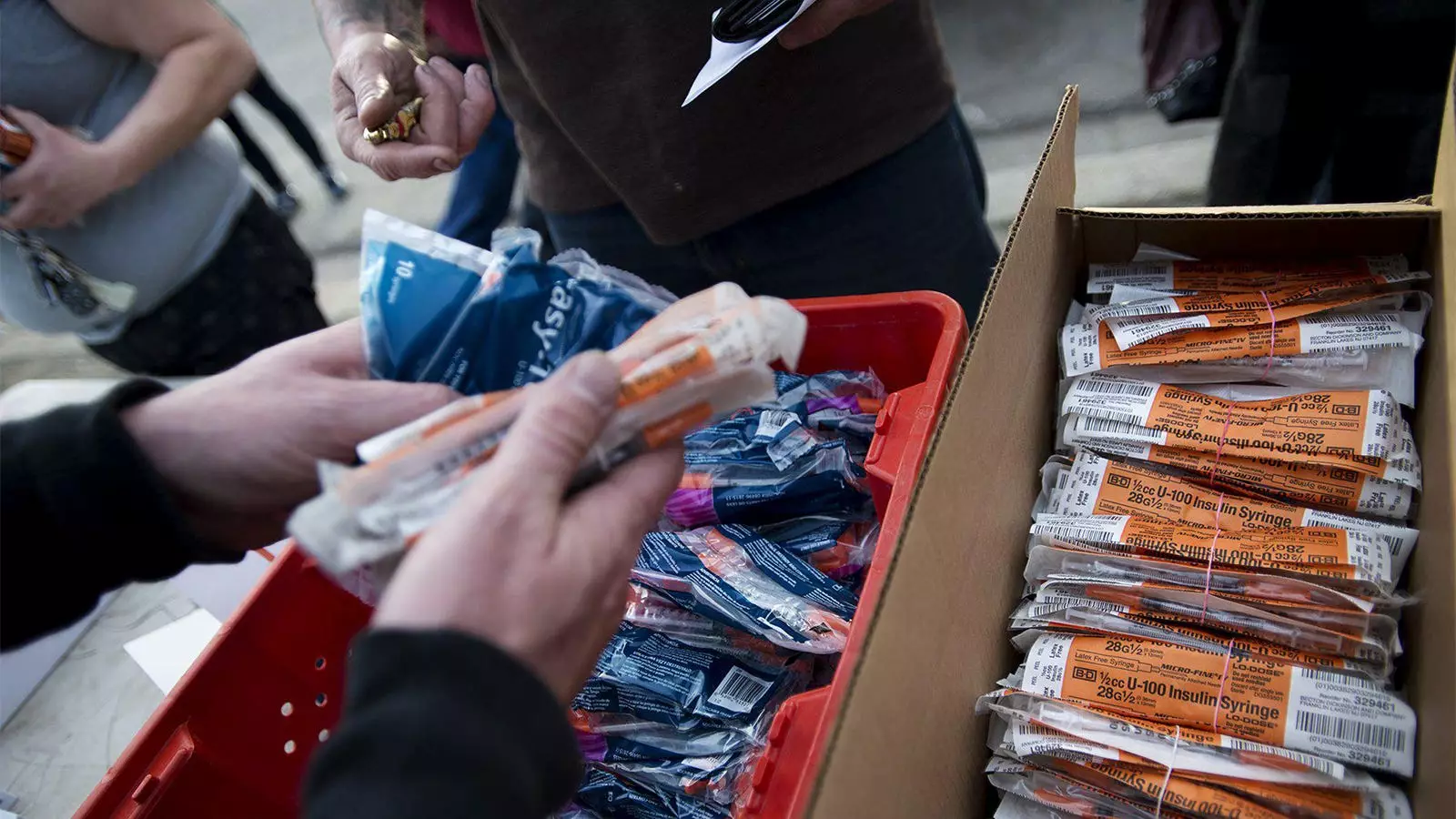A needle exchange program, also known as a syringe services program, is a harm reduction strategy that aims to provide clean and sterile injecting equipment to individuals who inject drugs. While some may view these programs as radical, it is crucial to acknowledge that people who use drugs will continue to do so, regardless of whether they have access to clean injecting equipment. This article will explore the significance of needle exchange programs in harm reduction and why they play a vital role in reducing the negative consequences associated with drug use.
The principle of harm reduction recognizes that people use drugs and acknowledges the real consequences of drug use. However, it recognizes that it is not our role to hinder people from using drugs but to prevent or minimize the negative outcomes that may result from it. Needle exchange programs, endorsed by the CDC as a public health strategy, are evidence-based approaches aimed at reducing the transmission of viral infections and acting as a gateway to various other services, including medication-assisted treatment. Despite their life-saving potential, these programs continue to face unwarranted backlash and opposition.
West Virginia, a state grappling with high drug-related overdose rates and HIV outbreaks, recently introduced House Bill 4866, seeking to end needle exchange programs in the state. However, banning these programs will only exacerbate these dire challenges and hinder necessary solutions. As an individual who has worked on multiple needle exchange programs in California for nearly a decade, I have witnessed firsthand the positive impact of these initiatives. These programs go beyond providing clean needles and syringes; they offer a range of services such as HIV/hepatitis C testing, medical and behavioral health services, naloxone distribution for overdose prevention, social services, housing assistance, and even basic necessities like food and clothing distribution.
Perhaps the most significant aspect of needle exchange programs is their ability to establish a space of trust. These programs not only provide immediate harm reduction tools but also offer support, guidance, and referrals to individuals who use drugs when they are ready to seek help or treatment. Needle exchange programs can extend their reach beyond just those who use drugs and provide assistance to other marginalized populations like people experiencing homelessness. By building trust and offering autonomy, these programs empower individuals to make informed decisions about their drug use without experiencing stigmatization.
Drug use in the United States continues to grow, with millions of individuals engaging in its consumption. With increasing drug use comes a rise in associated harms such as overdose. Therefore, it becomes crucial to meet people where they are and provide non-judgmental strategies and resources to mitigate these risks. Needle exchange programs serve this purpose by primarily focusing on the provision of safe injection equipment, preventing the sharing and reuse of needles. In doing so, these programs effectively reduce the spread of blood-borne viral infections, including HIV and hepatitis C, as well as bacterial skin infections like Staphylococcus aureus.
One common misconception about needle exchange programs is that they encourage and increase drug use, as well as lead to crime and needle litter. However, decades of research have proven these claims false. Numerous studies have found no evidence to support the notion that needle exchange programs increase drug use or initiate new cases of drug use. On the contrary, those engaged in these programs are more likely to access substance use treatment. Additionally, research has shown that needle exchange programs do not contribute to an increase in crime rates and that cities with these programs are more likely to practice proper needle disposal. Over three decades of data indicate that needle exchange programs are not only cost-effective and safe but also crucial in preventing HIV, hepatitis C, other infections, and drug-related overdoses.
It is essential to recognize that drug use is a multifaceted issue influenced by various social and structural factors. People may turn to drugs as a coping mechanism for trauma, daily life challenges, homelessness, historical oppression, income inequality, or environmental circumstances. Criminalizing drug use and the services that support individuals in their journey does not resolve the problem. States like West Virginia should rethink their policies and consider the comprehensive benefits of needle exchange programs, which far outweigh the risks associated with their removal. Policymakers, community advocates, and healthcare workers must collaborate with community organizations and individuals with lived experiences to develop programs that effectively meet the needs of the community.
Needle exchange programs play a crucial role in harm reduction by providing clean injecting equipment and an array of essential services to individuals who use drugs. These programs create spaces of trust, empower individuals to make informed decisions about their drug use, and act as gateways to other vital resources and treatments. Despite unfounded criticisms, research consistently supports the effectiveness and safety of needle exchange programs in preventing infections and reducing overdoses. It is imperative that states reconsider their positions and work towards implementing comprehensive harm reduction strategies to address the complex issue of drug use in our society.


Leave a Reply